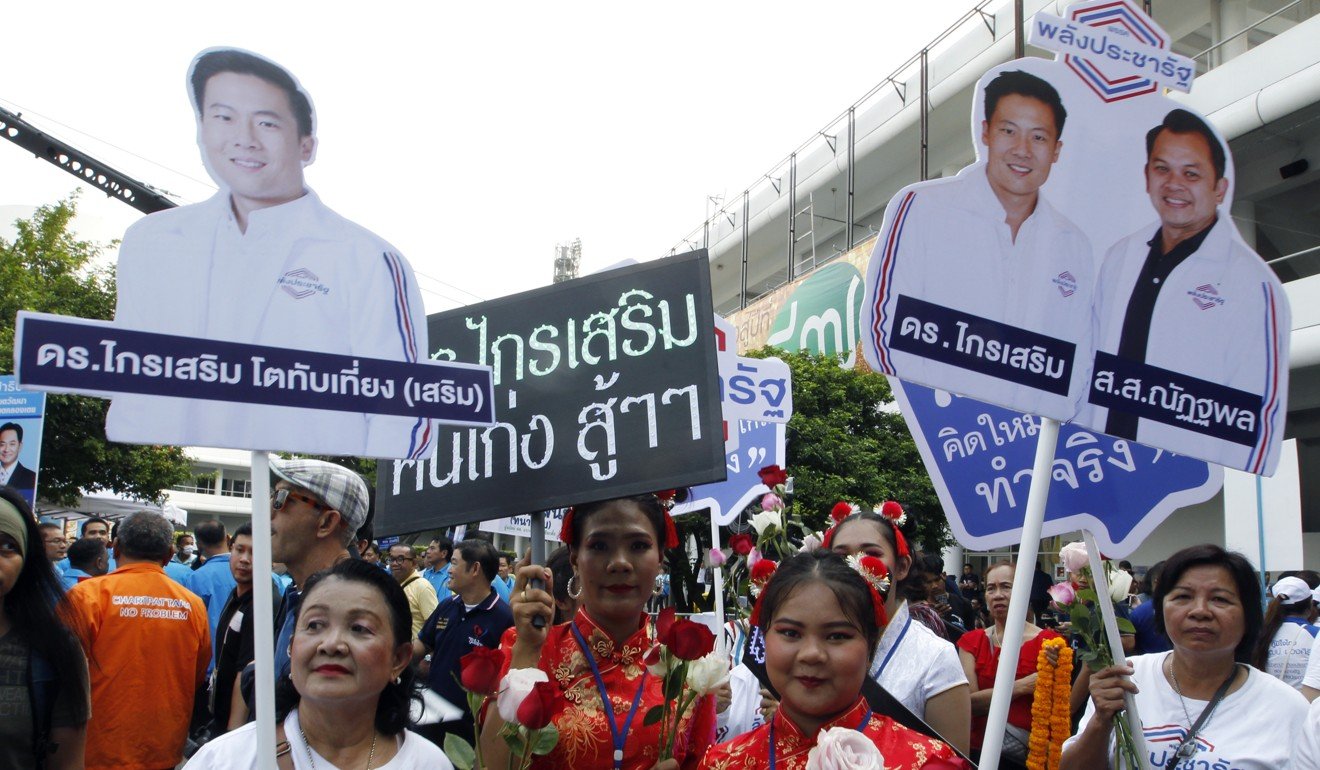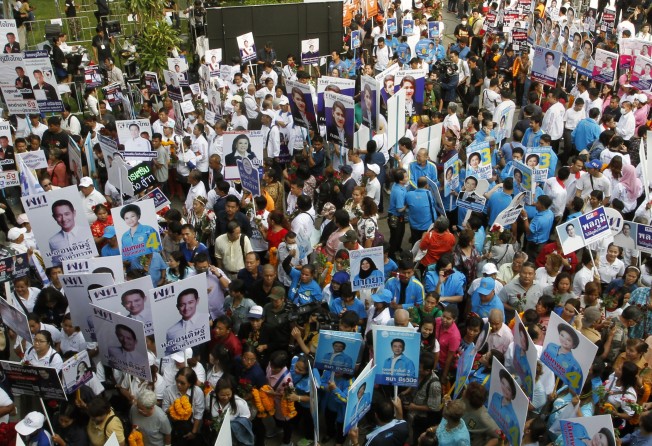
Thailand begins candidate registration for March general election
- The country has been under military rule since a coup in 2014 toppled a Pheu Thai-led civilian government following a period of political instability

Thailand’s Election Commission on Monday began accepting registrations for both constituency and party-list candidates ahead of a general election in March that will end over four years of military rule.
Registration is also open for up to three candidates for prime minister from each party. A new leader will be chosen from among these when the new parliament gathers following the March 24 election.

Although registrations continue across the country until Friday, every major party contesting the lower house election registered its single-seat constituency candidates on the first day, so that lists of candidates to be elected by proportional representation can be submitted later.
The pro-junta Palang Pracharath Party has named Prime Minister Prayuth Chan-ocha as its No. 1 candidate for prime minister, but the junta chief is said to be still considering whether to accept the offer.
The second and third candidates named by the party are party leader Uttama Savanayana and deputy Prime Minister Somkid Jatusripitak.
The Pheu Thai Party, which largely draws on support from the poor, especially in rural areas, is reportedly nominating former health minister Sudarat Keyuraphan as its candidate for prime minister along with another key party figure.
Sudarat is a long-time loyalist of ousted Prime Minister Thaksin Shinawatra, who lives abroad in self-imposed exile. The party is widely perceived as Thaksin’s political vehicle.
The Democrat Party, Thailand’s oldest party whose pillar of support comes from the wealthy in urban areas, plans to nominate just one candidate for prime minister, leader and former Prime Minister Abhisit Vejjajiva.
Thailand has been under military rule since a coup in 2014 toppled a Pheu Thai-led civilian government following a period of political instability.
After repeated delays, the junta said last month that the election to choose 500 new lower house members will be held on March 24, paving the way for the country’s return to civilian rule.
As supporters of various parties gathered at a registration office in Bangkok on Monday to rally for their parties, a 52-year-old business owner in Bangkok, who only gave his first name as Prawit, said he supports the Democrat Party for its long history and the qualifications of its candidates.
Korkaew Tirakul, a 64-year-old Palang Pracharath supporter in Bangkok, said she hopes the new pro-junta party will continue the projects undertaken by the junta, such as one aimed at helping low-income families and seniors, while staving off clashes between rival political forces in Thai society.
Somchai Naruerithiron, 51, a merchant and Pheu Thai supporter, said he hopes party lawmakers will help turn his underdeveloped area of Bangkok into a tourist attraction.
Under the country’s new electoral system, 350 of the 500 members in the lower house will be chosen through elections in single-seat constituencies, with the remaining 150 through proportional representation from party lists.
The country last had a general election in February 2014, when Yingluck Shinawatra, Thaksin’s sister, was prime minister, following months of anti-government protests. But the election was later nullified by the Constitutional Court following disruptions in some constituencies.
Pheu Thai won a general election in 2011, installing Yingluck as Thailand’s first female prime minister. She was ousted by the Constitutional Court soon before the military coup.